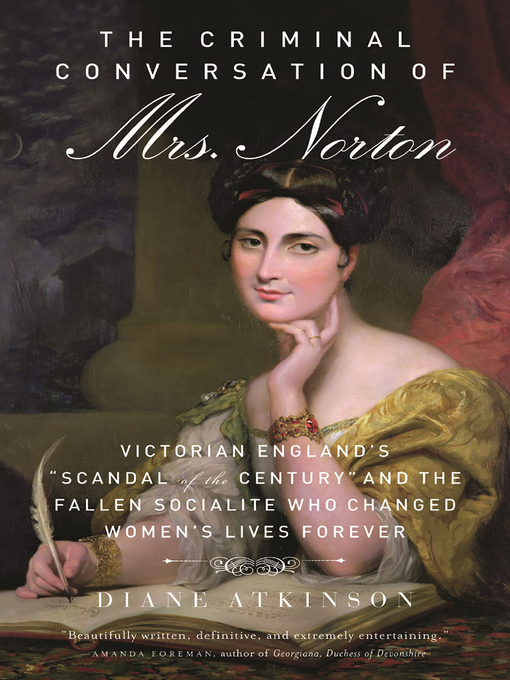Westminster, London, June 22, 1836. Crowds are gathering at the Court of Common Pleas. On trial is Caroline Sheridan Norton, a beautiful and clever young woman who had been maneuvered into marrying the Honorable George Norton when she was just nineteen. Ten years older, he is a dull, violent, and controlling lawyer, but Caroline is determined not to be a traditional wife. By her early twenties, Caroline has become a respected poet and songwriter, clever mimic, and outrageous flirt. Her beauty and wit attract many male admirers, including the Prime Minister, Lord Melbourne. After years of simmering jealousy, George Norton accuses Caroline and the Prime Minister of "criminal conversation" (adultery) precipitating Victorian England's "scandal of the century."
In Westminster Hall that day is a young Charles Dickens, who would, just a few months later, fictionalize events as Bardell v. Pickwick in The Pickwick Papers. After a trial lasting twelve hours, the jury's not guilty verdict is immediate, unanimous, and sensational. George is a laughingstock. Angry and humiliated he cuts Caroline off, as was his right under the law, refuses to let her see their three sons, seizes her manuscripts and letters, her clothes and jewels, and leaves her destitute. Knowing she can not change her brutish husband's mind, Caroline resolves to change the law.
Steeped in archival research that draws on more than 1,500 of Caroline's personal letters, The Criminal Conversation of Mrs. Norton is the extraordinary story of one woman's fight for the rights of women everywhere. For the next thirty years Caroline campaigned for women and battled male-dominated Victorian society, helping to write the Infant Custody Act (1839), and influenced the Matrimonial Causes (Divorce) Act (1857) and the Married Women's Property Act (1870), which gave women a separate legal identity for the first time.


